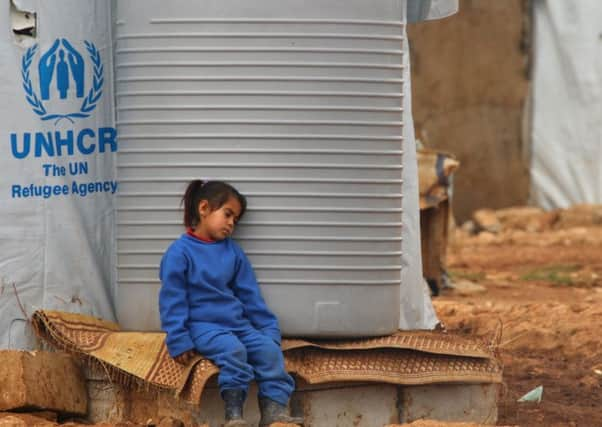Jeremy Purvis: West's response no match for Lebanon crisis


This was how the 33-year-old governor of Baalbek-Hermel described the World Heritage Site of the temples of Jupiter and Bacchus in Lebanon. Possibly the world’s most intact Greek, Roman and Byzantine remains didn’t have many visitors when I was there with the governor and their charismatic caretaker last week. British travel advice marks the whole of the province, along the Bequaa valley and bordering Syria, as red against all travel. I couldn’t help but think of the other caretakers of such precious world treasures who have sacrificed their lives in order to preserve such gems of human culture and history.
The vulnerability of the site reflects that of the people who live around it. The region has seen its population grow by a third with Syrians fleeing the hell-like slaughter of their country’s bloody internal conflict.
Advertisement
Hide AdAdvertisement
Hide AdThe “host community”, as the international bodies such as UNHCR and UNDP call Lebanon, is under severe strain. It was already so before the Syrian crisis. Lebanon has no president and its parliament has difficulty reaching agreement on electing one. Elections have been postponed again, and the confessional system of government, put in place at the end of the civil war in 1990 with the Al Taif agreement, is under huge pressure.
Violence has been a regular feature of life in Lebanon for years and youth unemployment is endemic. The arrival of more than a million Syrians seeking refuge has aggravated existing problems.
The scale of the flow of refugees into Lebanon cannot be understated. Amnesty International puts the figure at more than 1.5 million. The flow of refugees into the country is proportionately the equivalent of the US taking most of the population of Mexico (little good a Trumpian wall). The number of refugees that the UK has accepted pales into insignificance by comparison.
Driving along the Syrian border area I saw informal settlement after informal settlement where Syrians were trying to make a living in the fruit and vegetable industry in this agricultural region. Their homes are nothing more than a flimsy plastic-sheeted shelter. Their possessions are what they could squeeze into an old Peugeot “taxi” that took them across the border. You see the threadbare tarpaulins with a weather-worn UN logo fluttering in the wind and it seems to sum up the response from the rest of world to their plight.
The tolerance, sympathy, understanding, generosity and support for the traumatised from Syria by the Lebanese organisations I met was hugely impressive. But unless we increase the resources available to support these vulnerable people it is hard to see how sustained improvements in access to health care, education and shelter will be delivered.
The short-term challenge we face to keep people alive is enormous. But Lebanon also presents very long-term issues that we are simply not addressing adequately. A concern expressed quietly by many Lebanese is whether these temporary Syrians become as “temporary” as the Palestinians who have been in Lebanon since 1948.
We have left it to local bodies, often with insufficient support, to address these long-term questions. The Lebanese Organisation for Studies and Training, a non-religious body working to help build post-conflict peaceful communities in Lebanon, is one local charity working hard for long-term reconciliation.
There is a significant danger that, as with other crises, after the military operations and the humanitarian relief, our attention moves on. The colossal migration of people in the region is a challenge we are barely addressing now, but its consequences cannot be ignored.
Advertisement
Hide AdAdvertisement
Hide AdAt the UN Security Council last week we saw an increase in diplomatic pressure on Russia and the Syrian regime. But in many respects a resolution to the conflict in Syria seems as far away as ever. With no end in sight to the violence, the refugee crisis in Lebanon and other states in the region is likely to get worse before it gets better. We need a response from the international community that matches the scale of the challenges we face.
Baron Purvis of Tweed is a Lib Dem peer and former MSP